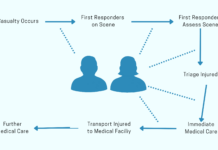Like most LGBTQ kids, you’re a little nervous about coming out, right? After all, this is BIG NEWS! Even if your parents have an inkling about your identity, it’s another thing to hear it from you. Lay the groundwork now and you’ll feel more at ease for taking this big step toward adulthood. We are Wesley C. Davidson and psychologist Jonathan L. Tobkes, M.D., and we recently wrote a book specifically for parents on what to do when their child come out. Since we know all about how parents can react, we’ve provided a list of things you should keep in mind before talking to them about your identity.
By following our 10 tips, chances are you will get a better response from you parents.
Choose the Right Time and Place Without Distractions:
Non-multi-tasking conversations are rare today so it is crucial to make sure that you have your parents’ undivided attention before initiating such a monumental conversation. Neither you nor your parents should be engaged in any other activity (e.g. driving, cooking, watching television, using your phone) when you come out. We also recommend that you don’t share your news during other family events (such as a sibling’s wedding or holiday dinner with your extended family). This is a private, intimate conversation that deserves respect and quiet. It will be hard for your parents to fully internalize what you are telling them if they are not fully present.
Accept That Your Parents’ First Reaction May Not Be What You Had Hoped:
Remember that you have had your entire life to come to terms with your sexuality, but your parents may not have given it much thought before you broached the topic with them. It is natural for parents to have preconceived notions or expectations for you, and it may take some time for them to feel comfortable with this new important information you are just now sharing with them. Try to put yourself in their shoes and imagine being told something from a close friend or family member that takes you by complete surprise. Give them some time to sit with the information and try not to judge them (or feel judged by them) if their first response is not what you had imagined.
Tell the Important People Before Telling the World:
If possible, you should make an effort to tell your family and close friends about your sexuality or gender before making it public information on social media. We have heard of many instances where parents find out that a child is gay because someone else sees that they changed their status on Facebook or posted a video on YouTube. Often, family members are offended and feel like you don’t value your relationship with them enough to tell them such important information about yourself firsthand. We have found that parents (and friends) are more likely to respond better when the news comes directly from you rather than from someone else.
Ensure for Your Own Safety and Well-Being:
If, based on their prior remarks or attitudes about the LGBTQ community, you feel that your parents are not going to react well, so much so that they won’t tolerate your living in their home as an LGBTQ teenager, then we’d recommend waiting to come out until you are independent from your family. This is especially the case if your parents have a history of verbally abusive or physically aggressive tendencies. You must always put your personal safety first. You can always “test the waters” to gauge how your parents feel about other people in the LGBTQ community before you start opening up to them about this.
If you absolutely can’t wait to come out, and aren’t sure if you will be safe after coming out to your parents, you need to make sure you have a back-up plan. This means looking up local LGBTQ shelters, figuring out how much money you need to save in order to live on your own, and reaching out to friends and adults you can trust. Make sure you know who you can reach out to in case you need temporary housing or emotional support.
Be Very Clear About Who Your Parents Can or Can’t Tell:
We have heard many accounts of teenagers becoming upset with their parents for “spilling the beans” about their sexuality or gender identity. When you come out to family and close friends, especially if it is still early on in your journey, it is important to inform whomever you confide in that they can or cannot tell other people. In some situations, people tell their parents that they are gay and tell them that they are fine with their parents telling anyone they would like (in fact, in many situations, the children prefer this because it is one less potentially awkward conversation that they need to have). In other instances, however, people want to be in control of exactly who is in on what they have regarded as a secret for a long time. The main message is that you cannot expect your parents to read your mind so you should be very clear about with whom (if anyone) they are permitted to discuss your sexuality or gender, including younger siblings, and relatives from a parent’s prior marriage.
Focus on the Positives from the Outset:
When you tell your parents you are gay, always be sure that it is coming from a place of love, not from anger or resentment. You may even want to preface the conversation with a statement expressing that you are telling them this because you love them and want to be closer with them and hope for them to know and understand you better. This initial conversation is not the best time to express your own doubts or concerns about being gay because it will likely only fuel your parents’ anxieties and also make it seem like you are not fully sure of the certainty of your news. We have found that parents often try to “talk their children out of being gay” as a first response so a good way to avoid that is by using a positive and affirming tone when you are discussing this with them.
Empathize with Your Parents:
It may be hard for your heteronormative parents to know how to be the best parent to a gay child because they may have had very little (if any) experience with gay people in general. Being a parent is the hardest job in the world and your parents may not have peers they can turn to for parenting advice like they have in the past. Even parents who have the best intentions will frequently “get their lines wrong” and say something unintentionally offensive and hurtful. When that happens, rather than respond with anger, try and engage in a calm conversation in which you explain to them what you need to hear from them and how they can make you feel loved and accepted in the family. In our experience, many parents do have unconditional love for their children, but aren’t always able to express that in a way that is clear.
Confide Your Own Thoughts and Feelings to Your Parents:
After you have had an initial conversation in which you share your news, and you have given your parents some time to digest and process this new information about your identity, you can share with them the steps that you went through (frequently including denial, guilt, fear, anger, shame, loss, and, ultimately, acceptance) and give them tips regarding how you worked through some of these difficult feelings. We have found that in many cases, the child’s journey tends to mirror the parents’ journey. Since you have been on this path for longer than they have, you have the benefit of time and wisdom and, in this case, can educate your parents.
Make It Clear That This Is the Beginning, Not the End:
It is not possible to answer all of your parents’ questions in one neat conversation. Coming out is a process and you should tell your parents that you are interested in continuing the dialogue with them over time. Many times, parents need time to process before they even have the language to appropriately engage on this topic. It goes a long way when you give your parents a hug, tell them that you love them, and leave the door open for future exchanges on this very important topic.
Give Your Parents Some Educational Material:
Especially if your parents do not have any gay friends or other family members, it would be a good idea to provide them with resources to help them better understand what you are going through and to support them during this potentially difficult time. PFLAG or Parents, Families and Friends of Lesbian, Gay, Bisexual and Transgender People, has resources you can download. Family Acceptance Project has helpful advice you can show your parents also.
Source:
https://www.teenvogue.com/story/how-to-come-out-to-parents-tips
Comments:
We can not only help parents to accept their LGBTQ kids, but we can also offer materials or help for the kids to more efficiently communicating with their parents and get affirmation. By providing help like this, we could also teach them what they should do if they did not get a positive result for the first time so that they won’t feel helpless and depressed immediately.




